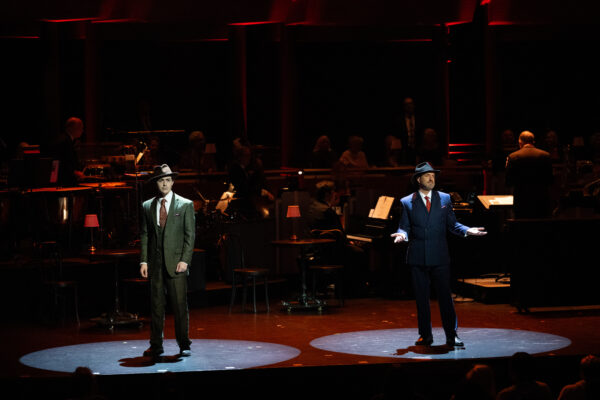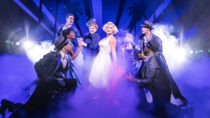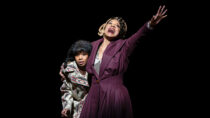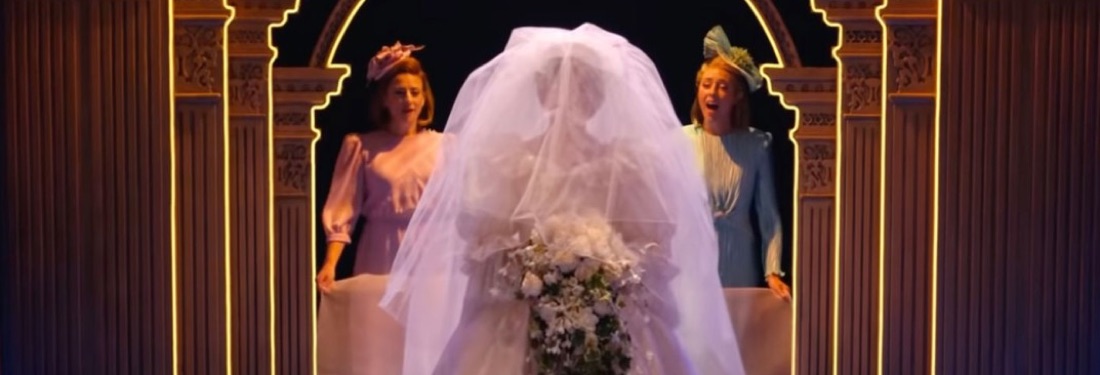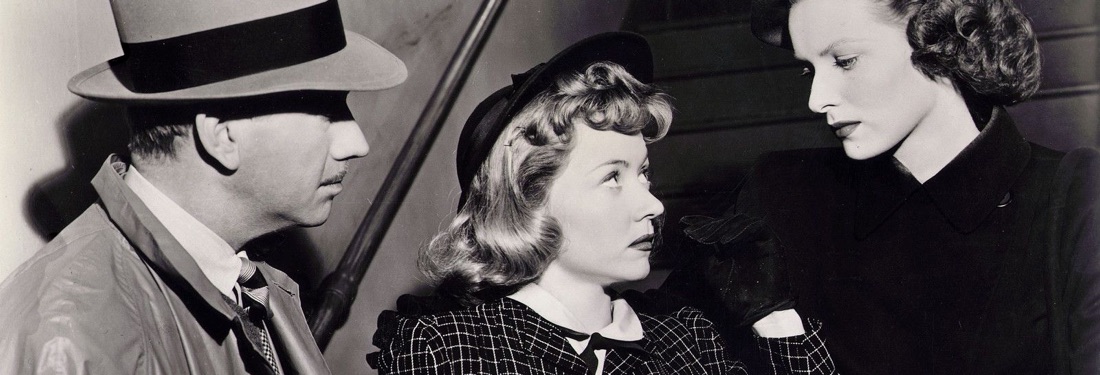
David Fox and Cameron Kelsall
MasterVoices presents a strongly-cast Sweet Smell of Success—but the merits of this noir musical are hardly black or white.
The long-awaited Broadway musical adaptation of the NBC series Smash is “not Bombshell – it’s just a bomb,” according to David Fox and Cameron Kelsall.
The new musical starring Idina Menzel, ostensibly a paean to back-to-naturism, could hardly feel more manufactured and synthetic.
David Fox and Cameron Kelsall review Rebecca Frecknall’s new staging of A Streetcar Named Desire at BAM, “a gripping realization that makes new a play many of us feel we know inside out.”
David Fox and Cameron Kelsall take on a new revival of Gypsy: Is there any gayer or more impassioned theater topic?
You might wonder how this slimly plotted show, which had a brief Off-Broadway run in 2007 before fading into relative obscurity, ended up occupying a piece of prime Main Stem real estate nearly two decades later. To that end, I have four words: Josh Gad. Andrew Rannells.
Although somewhat flawed, Days of Wine and Roses draws from the same musical language that made Piazza so instantly distinctive, and it features a specificity that I noticed in Adam Guettel’s earlier breakthrough work, Floyd Collins.
Sweeney Todd is by any measure a triumphant show, the kind that makes an audience understand why Broadway is American theater’s gold standard
That Some Like It Hot—this season’s high budget and high-profile Broadway musical—fizzles rather than sizzles is not only a disappointment, but also a bit of surprise.
In his attempts to be clever, and to overstuff Leopoldstadt with a dictionary’s worth of marginalia, Tom Stoppard never lingers on a character or storyline long enough to develop it into something worth caring about.
Only three years separate the creation of The Most Happy Fella (1956) and The Sound of Music (1959), but there’s a proverbial ocean between these two Golden Age musicals are being performed at prestigious festivals this summer.
Do you know the musical about the quirky little girl, her dysfunctional family and the devastating secret that binds them all together?
Can we start by not using Barbra Streisand as a polestar here?
This is more than just a revival—it’s a reinvigoration of what I consider to be one of the best works of the last 50 years.
Jerry Zaks’ high-gloss production, which trades heavily on a bland Americana at odds with the sharp satire of Meredith Willson’s libretto and timeless score, operates on all cylinders but fires on hardly any.
Embedded in the discursive scenes that make up the 100-minute play Shhhh is the notion that the line between pleasure and pain—of the corporeal and psychological varieties—is ever-shifting and often problematically conceived.
I see in Kimberly Akimbo an audacious idea, once unthinkable territory for a musical, which is realized through a highly imaginative and often unpredictable use of song and especially open-ended ensemble writing.
Katrina Lenk’s Bobbie dutifully channels an assertive, contemporary, sexually confident female persona, but it doesn’t feel fully realized or convincing.
The purview of so much gay theater still focuses squarely on trauma—consider the recent Tony sweep of The Inheritance—that the story of a queeny pre-teen who loves Diana Ross and lives out loud unapologetically seemed like a welcome tonic.
Morning Sun often feels as occluded and distancing as the austere, featureless set on which it’s performed.
I can’t imagine anyone watching this two-hour schlockfest at home and then dropping $150 for the privilege to see it again, masked and in an uncomfortable chair.
Watching Gloria Grahame—lips moist and parted, eyes staring off into some faraway middle distance—is absolutely arresting. She looks like the quintessential Noir femme fatale that was, in fact, probably her principal calling card.
Lawrence Brownlee and Michael Spyres are two singers at the top of their game, as this concert showed, virtually peerless in music as punishing as it is pretty.
Director Jon M. Chu’s film adaptation of Lin-Manuel Miranda’s In the Heights has come around at exactly the right moment.

